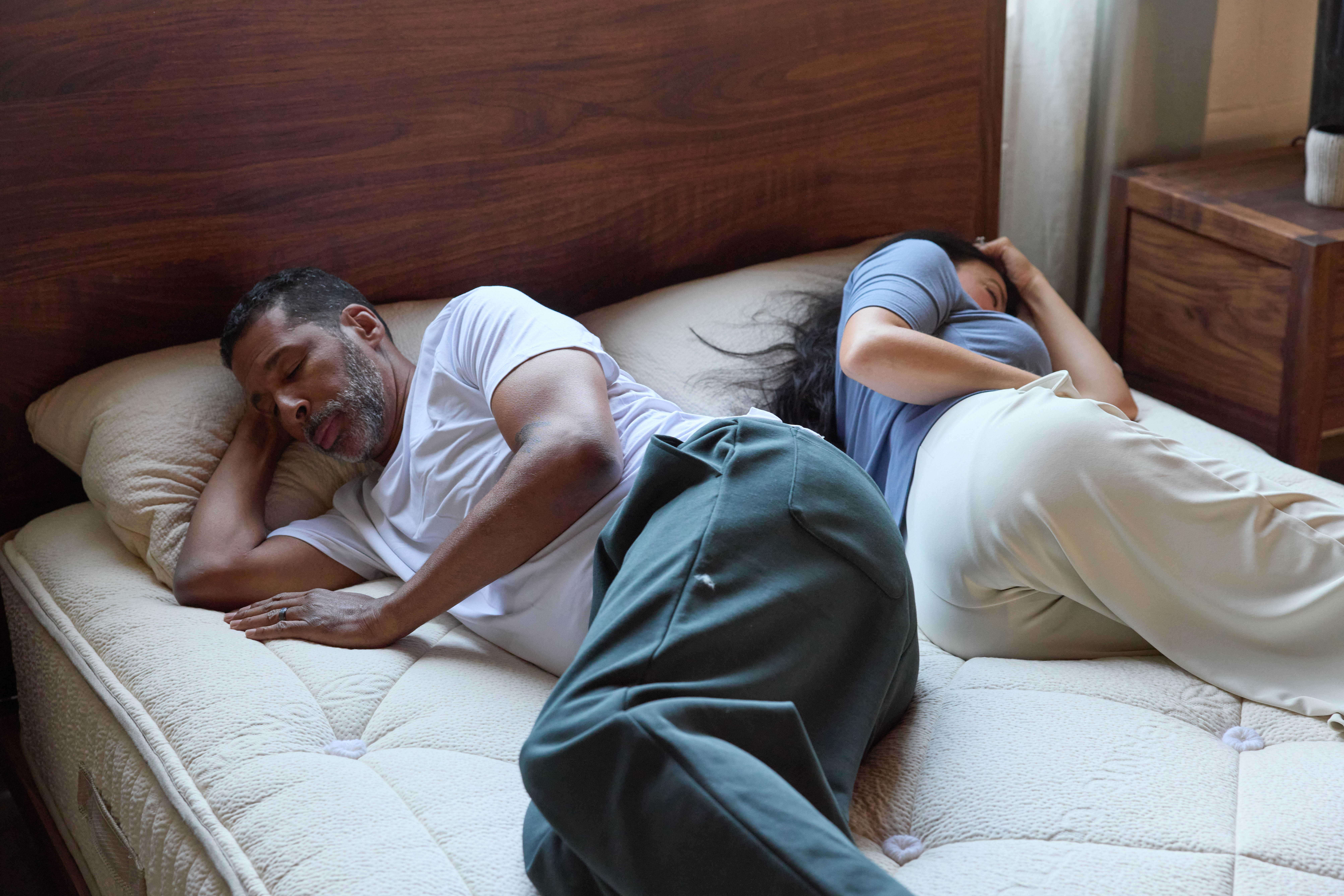It’s 4 p.m. on Sunday and, like clockwork, the looming dread of Monday hits. Suddenly, the “Easy Like Sunday Morning” carefree vibes I woke up with are overtaken by the ticking countdown to the start of another work week and all that adulting demands (even though I actually love what I do). The impending list of to-dos and unread emails are enough to put a damper on an otherwise blissful weekend. Aptly known as the “Sunday scaries,” the phenomenon is anything but new, but research from LinkedIn found that the feeling is far-reaching: 80 percent of working professionals reported experiencing it, and more than 1 in 3 have the Sunday scaries each week. But as common as they are, we can combat a case of the Sunday scaries, take back our weekends, and set a positive tone for the week ahead with a few tricks. Read on as experts explain the reasoning behind Sunday scaries and how to manage them.
What Are the “Sunday Scaries?”
From the saying “TGIF” to the song “Livin’ for the Weekend,” it’s clear the two days off are a highly-anticipated collective escape from the stress and obligations of the work week. But what’s also evident is that they’re not cutting it—as soon as Monday eve rolls around, the Sunday blues set in again, with a side of apprehension for the week to come. “Essentially your body is ‘bracing for impact’ feeling an intense physical and mental sensation of worry, dread, and fear that can impact being able to be present on Sunday evenings,” explains Michelle Smith, LPC, LMHC, LCMHC, a licensed mental health therapist.

Read more: Why Sleep is My Secret Weapon for Health, Longevity, and Menopause Wellness
Although the Sunday scaries tend to arise in the late afternoon and progress into the evening, licensed psychologist and founder of Gluck Psychology Collective Dr. Melissa Gluck, PhD, says “that awful pit in your stomach” can surface as soon as you wake up on Sunday morning and realize the weekend is almost over and you have to go back to work or school tomorrow. “The Sunday scaries can be seen as a form of anxiety, known as ‘anticipatory anxiety,’ in which we are nervous about a future situation that we have imagined to be a potential threat,” Dr. Gluck says. They can take the form of physical signs, like a rapid heartbeat, an upset stomach, or trouble sleeping, or emotional manifestations, like excessive worry or fear, difficulty concentrating, or racing thoughts.
What Causes Them, And Why Have They Worsened Lately?
Maybe it’s the disappointment that your “me time” has come to an end or that you didn’t make the most of your downtime, or you were just starting to feel relaxed when you have to shift back to the grind at full speed ahead. Or, perhaps the overwhelm from the pressures of your work on top of home responsibilities, and balancing the two, has got you down. Smith points out that the Sunday scaries can be triggered by multiple factors, depending on the person, but having them doesn’t necessarily mean you hate or despise your job: “It can feel like a major pendulum swing going from your personal roles in life to your professional role from the weekend to work week. Fears around managing what the upcoming work load may look like, the uncertainty of stepping into a new week, and obligations personal and professional can impact this.”
Then there’s the fact that American workers are burned out—so much so that burnout is at a 10-year high. Call it hustle culture or toxic productivity—either way, the constant stress can be to blame. Tack on the fear of losing your job in a tough job market, and it’s no wonder the Sunday scaries are at their worst. “Our society does not do a good job at providing encouragement for healthy work-life balance, so feeling this burden of uncertainty, impending work on our shoulders, and all the responsibilities life can throw may worsen [Sunday scaries] as well,” Smith says.
How Do They Lead to Poor Sleep and Monday Fatigue?
“The symptoms associated with Sunday scaries, like rushing thoughts, headaches, and racing heartbeat, can make it nearly impossible to unwind and go to sleep,” Dr. Gluck says. “Our running brain is keeping us up all night, thinking about the next day. As a result, we wake up tired Monday, making it even harder to get the motivation to get out of bed and start the work week.” The domino effect continues with a decrease in productivity, which reinforces our fear of not getting everything done that we were initially worried about, Dr. Gluck adds.
Although the upcoming work week is not actually happening now, the brain can’t differentiate between a real or perceived threat (think: a bear versus a work deadline), according to Smith. This physiological reaction is the “fight-or-flight” response, prompting the body to release adrenaline and the stress hormone cortisol, speed up the heartbeat, increase blood flow to the muscles, and release glucose into the bloodstream to keep the body on high alert and ready for action—the opposite of what you need to fall and stay soundly asleep.

Read more: The Viral Sleep Hacks Worth Trying (and the Ones to Skip)
How to Manage the Sunday Scaries
- Take time to truly unwind over the weekend. Smith points out that most of us struggle to feel a sense of safety when actually unplugging, and we’re addicted to the dopamine rush of needing to do something. “You may notice much of your ‘relaxation’ time during the weekend may include doom scrolling, feeling decision fatigue on what to do, and then when the Sunday scaries hit, you feel like you did not do ‘enough,’” she says. Carve out time for true relaxation and think about what that looks like ahead of time prior to the weekend, like being in nature, taking a walk or hike, reconnecting with a friend or loved one, writing or reading, or doing something creative, Smith encourages.
- Maintain your regular sleep schedule over the weekend. Our bodies thrive on consistency, and following the same sleep-wake schedule including on the weekends trains them to follow a regular sleep pattern, leading to better quality sleep and falling asleep and waking up more easily. “Going to bed at about the same time every night helps with creating a healthy relationship with sleep and your routine and prevents the Sunday scaries from impacting sleep,” Smith says. Even better if you have a nighttime regimen to create a safe space to fully decompress.
- Practice exercises for your mental health. Whether it’s engaging in mindfulness, journaling, or gratitude, Dr. Gluck shares that wellness rituals can help you stay grounded and find meaning in your day-to-day life, rather than living for the weekend. Her personal favorite is the 5-4-3-2-1 grounding method, using the five senses to bring your focus to the present moment and your surroundings, blocking out thoughts of Monday. “Spending a few minutes engaging in mindfulness or meditation before bed can help regulate your internal state to help you fall asleep,” Dr. Gluck suggests.
- Have something to look forward to on Monday. “Creating a positive association with the first day of the work week can be incredibly helpful to balance negative associations you may have with Monday,” Smith describes. Dr. Gluck recommends scheduling time for self-care and activities that bring you joy to avoid burnout. Plan a catch-up phone call with your friend on your lunch break, book a massage appointment after the work day, or order your favorite takeout for dinner. “If you can have something to look forward to, it begins to shift the narrative around Mondays being the ‘worst’ day of the week and creates a more neutral or even positive perspective,” Smith says.

Read More: Why Weighted Blankets Feel So Good
Have feedback on our story? Email [email protected] to let us know what you think!

Shop Pillows
The Essential Organic Pillow Collection
Gentle, breathable, non-toxic support.







